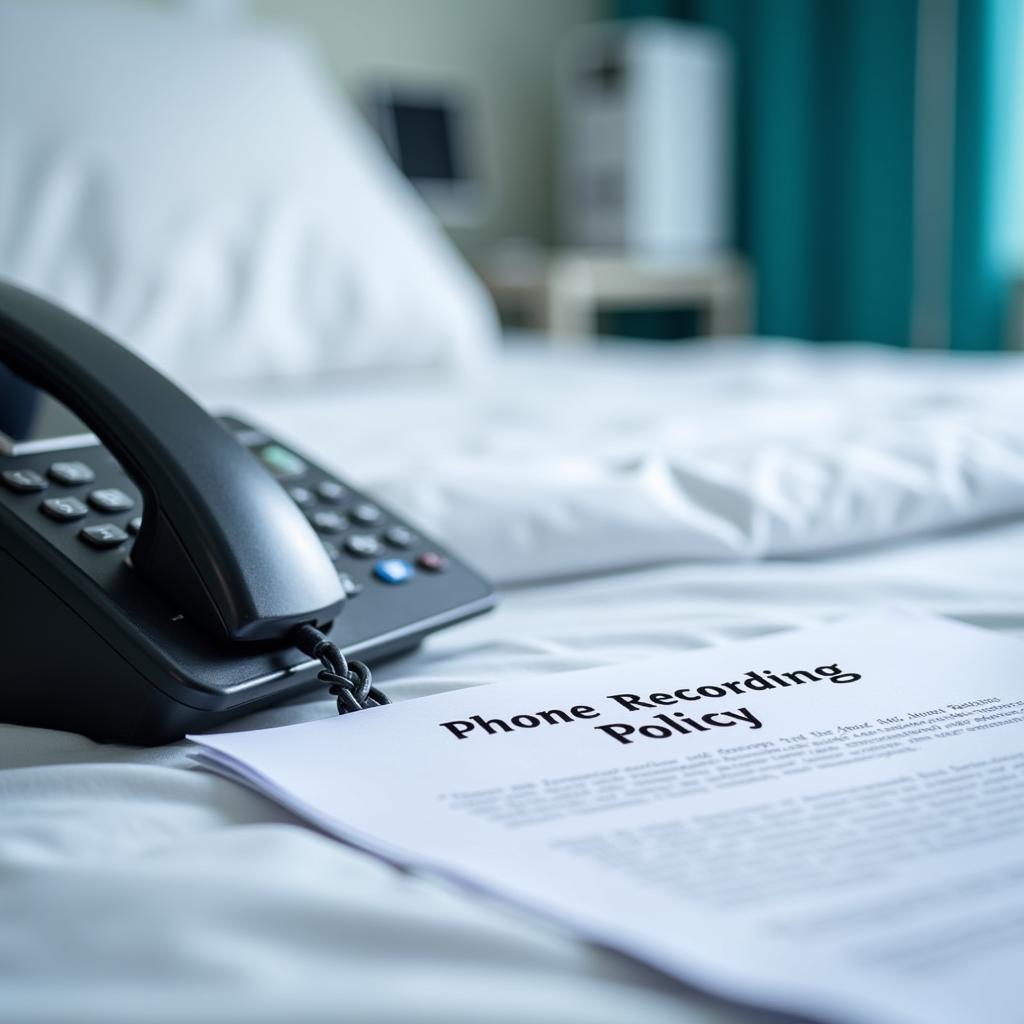The question of whether hospitals record phone calls is a common one, often fueled by concerns about privacy and confidentiality. While the answer isn’t always straightforward, understanding the legal framework and common practices can shed light on this important topic.
Legal Landscape of Hospital Phone Recordings
In many jurisdictions, recording phone conversations is subject to specific laws, often revolving around the concept of “two-party consent.” This means that all parties involved in a conversation must be aware of and consent to the recording. However, there are exceptions, particularly when it comes to businesses like hospitals.
Some states have “one-party consent” laws, which allow recording if at least one party involved consents, even if others are unaware. Hospitals may fall under this provision, using recordings for quality assurance, staff training, or documentation purposes.
It’s crucial to note that laws vary significantly between states and even within healthcare settings. For instance, conversations involving protected health information (PHI) are subject to stricter regulations under HIPAA (Health Insurance Portability and Accountability Act).
Reasons Why Hospitals Might Record Phone Calls
Hospitals may choose to record phone conversations for a variety of reasons, primarily aimed at improving patient care and operational efficiency. Here are some common motivations:
- Quality Monitoring: Recordings can be used to evaluate staff performance, ensuring courteous and professional interactions with patients.
- Training Purposes: New staff members can benefit from listening to recorded calls, learning best practices for handling patient inquiries, scheduling appointments, and addressing concerns.
- Documentation and Liability: In case of disputes or complaints, recorded conversations can serve as valuable evidence, protecting both the hospital and its staff.
- Emergency Situations: During emergencies, recorded calls can help reconstruct timelines, assess response times, and identify areas for improvement.
Patient Rights and Confidentiality Concerns
While hospitals may have legitimate reasons for recording calls, it’s equally important to address patient rights and confidentiality concerns.
- Transparency is Key: Hospitals should inform patients about their recording practices, whether through signage, website disclosures, or verbal notifications at the beginning of calls.
- Obtaining Consent: While not always legally required, obtaining explicit consent from patients before recording conversations demonstrates respect for their privacy.
- Data Security: Hospitals have a responsibility to store recorded conversations securely, implementing measures to prevent unauthorized access or breaches.
How to Find Out if a Hospital Records Phone Calls
If you’re curious about a specific hospital’s phone recording policy, there are several avenues you can explore:
- Check their Website: Many hospitals publish their privacy policies online, outlining their stance on phone recordings.
- Contact their Privacy Officer: Hospitals often have designated privacy officers who can provide information about data handling practices.
- Inquire Directly: Don’t hesitate to ask about recording policies when you call a hospital.
 Hospital phone with a policy document
Hospital phone with a policy document
Navigating Phone Conversations with Hospitals
Whether or not a hospital records phone calls, it’s always advisable to be mindful of the information you share and the language you use. Here are a few tips:
- Be Professional and Courteous: Treat hospital staff with respect, even if you’re feeling stressed or frustrated.
- Provide Accurate Information: Ensure all details you provide are correct to avoid miscommunication or delays in treatment.
- Avoid Sharing Sensitive Information: Refrain from disclosing unnecessary personal or financial information over the phone.
Conclusion
The question of whether hospitals record phone calls is complex, with legal considerations, patient privacy, and operational needs all coming into play. While recordings can serve valuable purposes in healthcare settings, transparency, ethical practices, and robust data security measures are paramount to ensure patient trust and confidentiality. If you have concerns, don’t hesitate to reach out to the hospital directly to understand their specific policies.
For any inquiries or assistance, please don’t hesitate to contact us:
Phone: 02437655121
Email: [email protected]
Address: Số 298 Đ. Cầu Diễn, Minh Khai, Bắc Từ Liêm, Hà Nội, Việt Nam
We are available 24/7 to assist you.